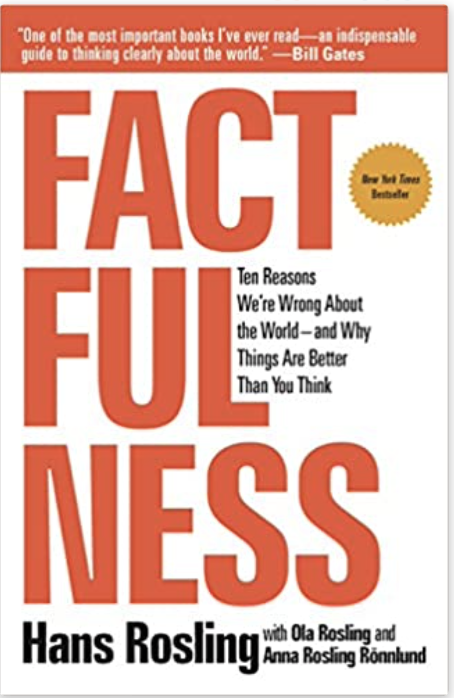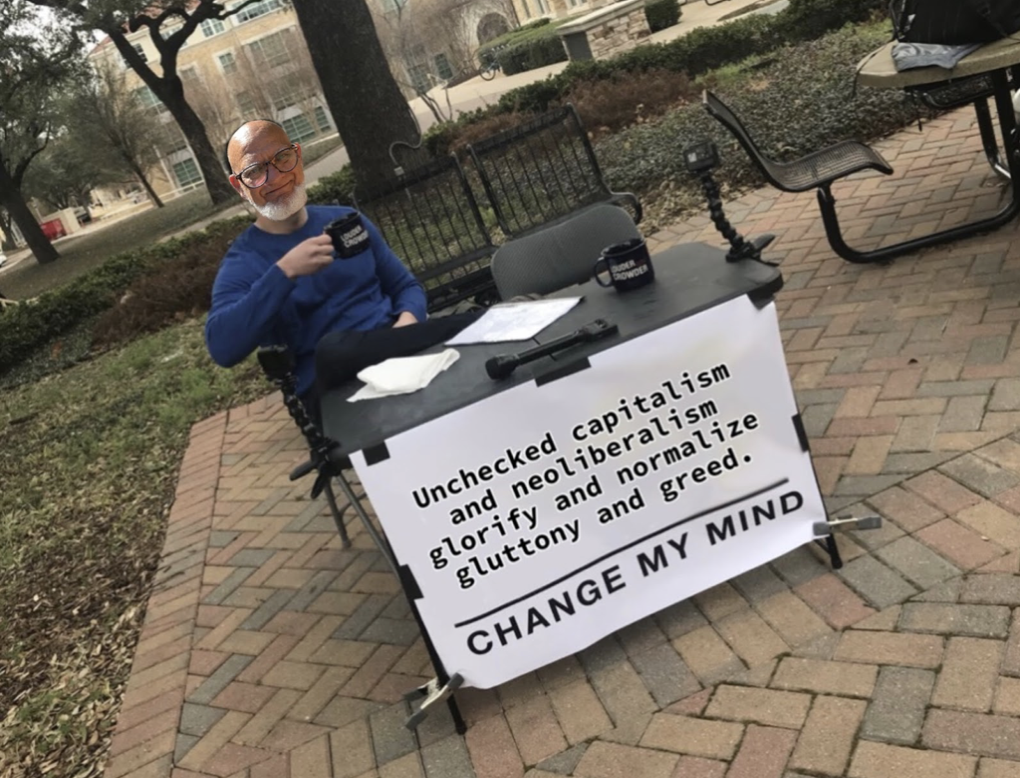“The problem of the poor is not the problem, the problem is the rich.”
-Miles Richardson
[Note: This and other posts will become part of a revised edition of Confronting Toxic Othering]
Hans Rosling’s book Factfulness and critical Hydra theory
More on critical Hydra theory
My quest to more fully understand the genealogy of privileging forces continues, and below I present my less-than-optimistic view on why confronting toxic othering and systemic marginalization is perhaps a Sisyphean task. In brief, an ethos of privilege -based on gender, class, race, religion, i.e, that some people are inherently superior to others- permeates all cultures at such a deep level that world-wide change may be impossible.
Common Reading
Not unlike many other educational institutions, every year my university assigns a common reading intended for all incoming students. The expectation is that ideas presented in this book will be talked about in a wide array of classes. Faculty are provided copies of the reading well in advance, and so I received -and have now read- this year’s reading. Factfullness by TED star Hans Rosling is not a hard read, though I found his repetitive style mildly annoying.
year’s reading. Factfullness by TED star Hans Rosling is not a hard read, though I found his repetitive style mildly annoying.
Reviews of this book tend to be positive, even from the development wonks at OXFAM. However, none of the reviews I have been able to read address his core assumption, namely that we are ‘wired’ to think the way we do. We are often wrong about world facts, Rosling argues, because our views are based on ‘instincts’, for example The Generalization Instinct and The Urgency Instinct.
Wired in preferences
Our preference for sweet, salty, and fat foods evolved within our species over scores of millennia and served us well in our struggle for survival in a pre-modern world. We now have to work at curbing these urges to avoid the health risks that come with modern life and affluence such as diabetes and heart disease. In exactly the same way, the ten psychological instincts outlined by Rosing need to be tempered and controlled by cultural norms. We tend to have critical and fundamental misperceptions of the world because we have not fully addressed due to these ‘instincts’.
Without explicitly saying so, Rosling is using a mainstream evolutionary psychology approach, and then presents an antidote to our ‘hard wired’ psychological mistakes, namely be more ‘factful’, hence the title of the book. Just like we need to control our tendency to eat too much sugar and fat we need also to be more self-aware of our tendencies to commit errors in how we view the world.
Here is how Rosling explains it:
“Our cravings for sugar and fat make obesity one of the largest health problems in the world today. We have to teach our children, and ourselves, to stay away from sweets and chips. In the same way, our quick thinking brains and cravings for drama -our dramatic instincts- are causing misconceptions and an overdramatic worldview.”
The core assumption of evolutionary psychology is that human brains are the product of evolution. Numerous ‘modules’ (e.g., sweet and salty taste good!) emerged in the human brain which served our species well. These modules developed in what evolutionary psychologists call our ‘EEA’ or environment of evolutionary adaptiveness. EEA is “…the ancestral environment to which a species is adapted. It is the set of selection pressures that shaped an adaptation.”
This approach takes a strong nature and nurture approach, rejecting the more typical and extreme standard social science model (SSSM) which argues that all human behavior is solely a product of culture, or ‘nurture’.
I agree with Rosling’s evolutionary psychology premise and reject extreme SSSM. Can we extend his thinking into other realms? And what does this have to do with critical Hydra theory and a genealogy of privileging forces?
The Seven Deadly Sins
We don’t need to reference Freud to make the obvious point that sexual desire is a powerful and pervasive human characteristic. That said, all cultures have developed normative systems restricting sexual expression; in no known human culture are sexual desires totally unregulated, with both proscriptive and prescriptive norms restricting sexual behavior vigorously enforced.
Driven by a strong libidinal instinct our human brain wants sex, but our cultural norms temper our desires. To be clear, this is the same explanatory theme based in evolutionary psychology stressed by Rosling repeatedly in Factfulness.
Lust is one of the seven ‘deadly sins‘, the others are pride, greed, envy, gluttony, wrath, and sloth. The origin of this  list of sins lies deep in the Western cannon, dating back to pre-Christian Greek and Roman writings.
list of sins lies deep in the Western cannon, dating back to pre-Christian Greek and Roman writings.
Through the lens of critical Hydra theory, perhaps the two most important sins are gluttony and greed. I have long argued that unchecked capitalism and neoliberalism tend to glorify and normalize these two sins.
As with all of the dead sins, Western religions have a great deal to say about gluttony and greed as sins, and many have dogma which encourages sharing, not hoarding, wealth. In Christianity there is reference to ‘tithing’ (giving one tenth of your wealth to the church so they may help the poor) and in Islam the giving of zakat is a form of worship that means giving to the mosque all wealth above what is needed for basic family living. Both the Qur’an and the Bible are fairly clear about the moral error of accumulating vast wealth and the goodness to distributing money beyond basic needs as charity to those less fortunate; both religious traditions condemn greed and gluttony. The founding intent of these religious traditions has been hijacked by the lust for power. For centuries the rich and powerful have hidden behind religion to maintain and increase their wealth. In the United States the far right and Republican Party in the US have elevated this practice to a high art.
Restated, using the evolutionary psychology perspective employed by Rosling I argue both gluttony and greed were ‘hard wired’ into human minds during our EEA. Cultures, through their religions or other moral teaching attempt to temper these tendencies, and we see evidence of this in the Western cannon and specifically in Western religions.
A less-than-optimistic conjecture
All of the heads of the Hydra (patriarchy, race/ethnicity, colonialism/paternalism, classism, hetero/cis normativity, ableism, ageism, and anthropocentrism) have long histories, but my conjecture is that patriarchy and classism are the most important in terms of understanding the intersectional connections that exist between all the privileging forces. In a previous post I put is this way,

I suggest beginning with a broad theoretical approach, looking at cultural evolution and examining how capitalism drove the fundamental restructuring of social life. This restructuring can be seen in the emergence of state societies which, through the actions and example of those in power, legitimized the rise of stratified societies characterized by structured social inequality, beginning the long process of normalizing and then glorifying gluttony and greed. Like the proverbial frog put into a pot of cold water and slowly raising the temperature to boiling and killing the frog, human cultures have accepted the core myth embedded in classism -some ‘deserve’ great power. The slow rate of sociocultural change allowed for this assumption to be slowly perpetuated by those in power, ‘baked into’ norms, policies, laws, and traditions. I don’t think this transition was the result of any one group of leaders but rather an organic process that happened as those in power created and sustained the illusion of superiority. Humans invented social stratification -structured social inequality based on power and wealth- and classism just as much later they invented race and ‘whiteness.’
In general, gender differentiation did not degenerate into gender stratification, at least in highly toxic form, until relatively recently in human history, during the rise of agriculturally based state society 5,000-8,000 years ago. Perhaps simultaneously, sexism and proto-classism began to permeate human cultures, slowly being normalized, as stated above, in norms, policies, laws, etc., that is, woven into the fabric of world cultures. Gluttony and greed, though recognized as ‘sins’, slowly but inexorably became normalized in a world where the idea that some people legitimately deserve more power than others overcame any contrary moral teaching of Western or other religions.
We are hard wired to be gluttonous and greedy and we now have few norms and fewer laws tempering these tendencies. Though many may have other views, those who make the laws and dominate power structures see the accumulation of wealth as a right and as an admirable goal. As the Duchess of Windsor Wallis Simpson once said, “You can never be too rich or too thin”. Instead of curbing and tempering these anti-egalitarian instincts we have normalized these socially dysfunctional tendencies. The history of the last few centuries, and certainly of the last few decades, tells us that avarice has now become a virtue. Most will defend the right to accumulate wealth -and hence power- orders of magnitude beyond what is needed, therefore further ossifying various justifications for inequality and systemic marginalization of the ‘other’.
An implicit assumption of those who defend multi-millionaires and billionaires is that everyone has a right to acquire as much wealth as they are able, thus buying into an ‘infinite pie’ model of wealth. Economies expand and thus the wealth pie is not technically finite, but the opposite assumption of an infinite pie -where potentially everyone can be outrageously rich- is just not true. Wealth is limited, and the avarice of the upper 1% does impact the income and livelihoods of others.
Rosling’s core premise is right. Humans are driven by basic instincts and our cultures must recognize and address the dysfunctional consequences of these instincts, creating cultural mechanisms to curb and control them. The instincts toward gluttony and greed are powerful and we may have lost our ability to moderate them. This less-than-optimistic conjecture laments that effectively confronting toxic othering (‘bending the moral arc toward justice’) would mean, essentially, unwinding the past 5000 years of human history and finding a way for humans to recognize and confront these two deadly sins much more effectively. I’m not holding my breath.
More to come
In a next post I will discuss the trajectory of all eight privileging forces. In the meantime if you have any thoughts, feedback or suggestions you can reach me at arcaro@elon.edu.


 Follow
Follow